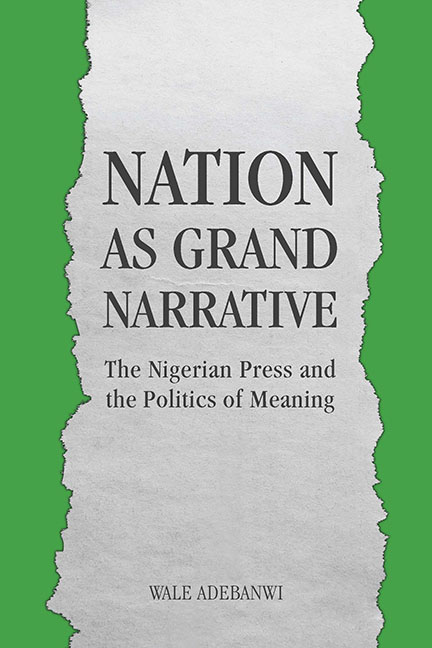Book contents
- Frontmatter
- Dedication
- Contents
- List of Illustrations
- Acknowledgments
- Part I Contextual and Conceptual Perspectives
- 1 Nation as Grand Narrative
- 2 Interpretive Theory, Narrative, and the Politics of Meaning
- Part II Colonial Agency and Counterhegemonic Struggles
- Part III Inclusion, Exclusion, and Democratic Contestations
- Part VI Domination and Resistance in Majority-Minority Relations
- Conclusion: Beyond Grand Narratives
- Notes
- Bibliography
- Index
1 - Nation as Grand Narrative
from Part I - Contextual and Conceptual Perspectives
Published online by Cambridge University Press: 16 February 2018
- Frontmatter
- Dedication
- Contents
- List of Illustrations
- Acknowledgments
- Part I Contextual and Conceptual Perspectives
- 1 Nation as Grand Narrative
- 2 Interpretive Theory, Narrative, and the Politics of Meaning
- Part II Colonial Agency and Counterhegemonic Struggles
- Part III Inclusion, Exclusion, and Democratic Contestations
- Part VI Domination and Resistance in Majority-Minority Relations
- Conclusion: Beyond Grand Narratives
- Notes
- Bibliography
- Index
Summary
In 1953 a political crisis threatened to break up colonial Nigeria and terminate the possibility of common political independence for the country. This crisis was partly instigated, elaborately reported, and, ultimately, profoundly shaped by newspaper narratives. Anthony Enahoro, the anticolonial activist andleading member of the Action Group, one of the major political parties in late colonial Nigeria, whose motion at the federal parliament provoked this crisis, had been a journalist most of his adult life. Enahoro became the editor of theSouthern Nigerian Defenderat age twenty-one in 1944. He was later the editor ofComet, associate editor ofWest African Pilot, and editor in chief ofMorning Star. Indeed, Enahoro left his position at theMorning Starto become a member of the federal parliament in late colonial Nigeria. Therefore he was a product of the struggle by the radical—or what was called “nationalist”—press to end colonial rule in Nigeria.
On March 31, 1953, the Honorable Anthony Enahoro submitted a motion in the House of Representatives for a resolution “as [a] primary political objective” that Nigeria achieve self-government in 1956. Enahoro added that any other proposal short of full political independence for Nigeria “has ceased to be a progressive view, because Nigerian nationalism has moved forward from that position.” In a response that showed the fault lines of Nigerian nationalism in the late colonial era—and since then—Sir Ahmadu Bello, leader of the Northern People's Congress (NPC), introduced a dilatory motion substituting the phrasing “as soon as practicable” for the year “1956” proposed by Enahoro. A “bitter and tempestuous” debate ensued, as Bello insisted that Enahoro's motion “merely serve[s] to destroy inter-regional unity which the [Richards] Constitution is building.”
As if to remind Enahoro and the other proindependence leaders of the southern political parties of the artificiality of the “Nigerian nationalism” that Enahoro was glorifying, Bello added that “sixty years ago, there was no Nigeria but merely a collection of communities very different in outlook and mode of life.” An independent, united Nigeria almost ended with this debate and the consequent recriminations. The northern region, which made up more than half of the land space of colonial Nigeria, threatened to leave the union.
- Type
- Chapter
- Information
- Nation as Grand NarrativeThe Nigerian Press and the Politics of Meaning, pp. 3 - 29Publisher: Boydell & BrewerPrint publication year: 2016



